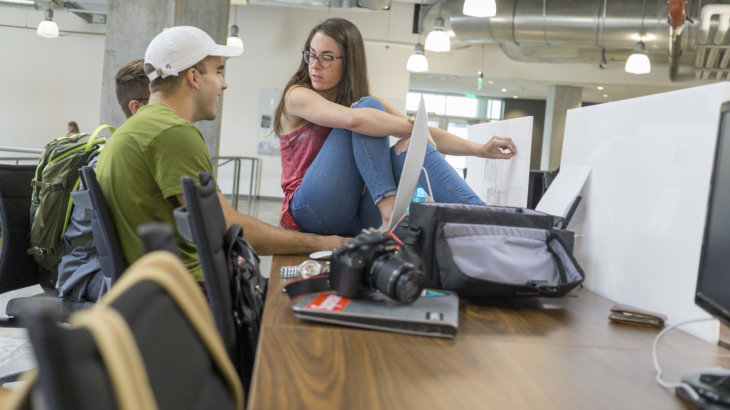We had a clear vision when we started what is now the Lassonde Entrepreneur Institute at the University of Utah — to create a program that welcomed all students to take a risk and learn by doing. We felt the key to engaging as many students as possible was to put students at the center of everything we do. Here are five ways we created a student-centric entrepreneurial community:
1. Put students in charge of (almost) everything.
We run our program with more than 150 student leaders that identify and create content, building programming, manage budgets and allocate resources. Allowing students to create our programming and shape content has resulted in several unique approaches and resources that I doubt would have occurred to me. Just as the idea of sleeping in a stranger’s bed rather than renting a hotel room (Airbnb) never occurred to me, a prototyping fund (our Get Seeded grant program) and a large community space for student entrepreneurs (the Lassonde Studios) are student-driven ideas. The result is an incredibly diverse community of student entrepreneurs representing almost every major on campus ranging from undeclared freshman to Ph.D. students. Taylor Randall, dean of the David Eccles School of Business said, “Letting go of the reins and putting students in charge is the secret sauce that makes Lassonde work.”
2. Listen to student entrepreneurs – they will tell you what, how, when they want to learn.
Through our student leaders, we have a direct, constant and unfiltered pipeline to hundreds of student companies. When one student helps another find resources, solve problems and connect with experts, it creates a real-time feedback loop from active entrepreneurs. Students are good at finding and learning things online and they tire of lectures and speeches. Their favored form of learning is kinetic – they want to do things and make things.
As we were developing what is now the Lassonde Studios – which combines a 400-bed dorm for student entrepreneurs with 20,000 sq. ft. of innovation space – the concept of adding a residential component was the result of a meeting with hundreds of student entrepreneurs. These students identified the need to have a 24-hour-a-day space because: (1) when they have free time late nights and weekends, campus spaces are open 8 to 5, and (2) for some of them their most creative time was the wee hours of the morning. One student said, “This is not a job I go to at 8 a.m. and go home at 5 p.m., this is my passion I think about 24 hours a day.”
3. Meet the student where they are.
As we got better at listening to students, we realized student entrepreneurs come in all shapes and sizes and range from those that have heard the word “entrepreneur” but could not define it, to students that have fully formed businesses generating revenue. To support this diverse group we had to provide “learning-on-demand.” Today, one student will want to learn about web development and next week company formation. Another might need to learn design thinking and build a prototype. We created a flexible, highly varied set of programs, content and mentoring to meet the students where and when the need it. As a result, we have over 500 student startup teams working on the businesses. To meet students that were reticent to be branded an “entrepreneur” we have a 24-hour cafe where they can observe entrepreneurial behavior and decide if they want to join in.
4. See one, do one, teach one.
Borrowed from medical education, we found one of the best ways for students to hone their entrepreneurial skills is to help or mentor another student entrepreneur. Some of this is formal – we fund scholarships for students who want to be in a startup but do not have ideas to work on and be mentored by students launching companies, to informal interactions and coaching through our founders’ board.



